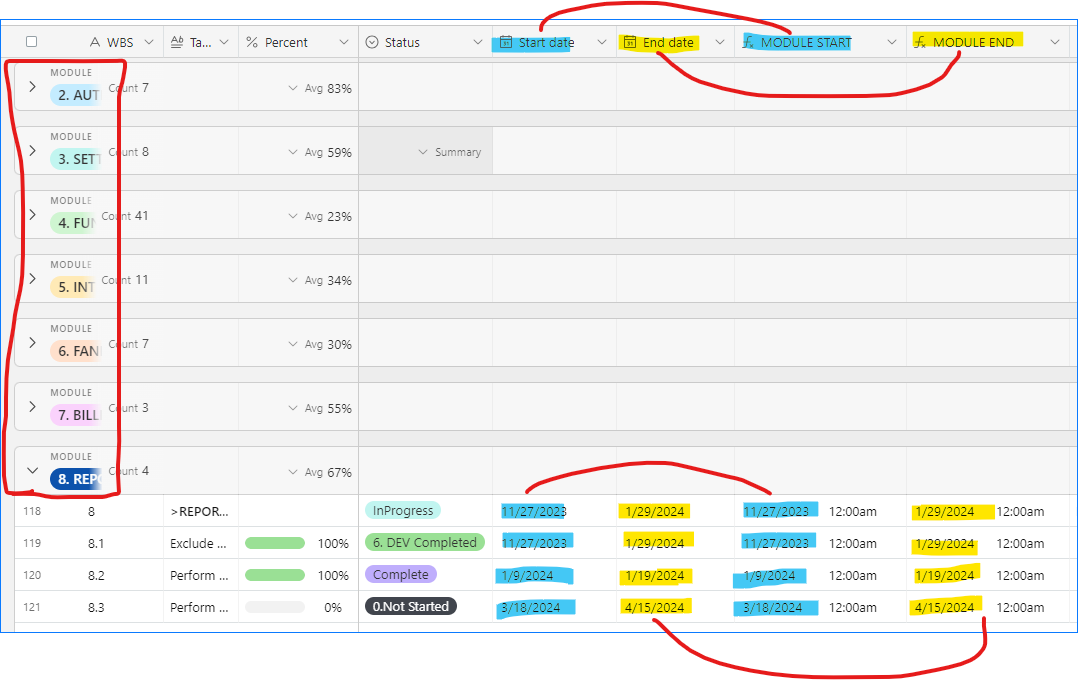I am trying to get Earliest or Latest date from a field (example: 2022-10-13, 2022-10-15). When I use Min or Max formulas - I get zeros. (I marked those areas as red)
Looking forward for solutions. Thank you!
To better understand my case I have prepared how everything works in my Airtable:
First sheet is for a/b test Data. We import all a/b tests information here.
| Single line text | Link to Other sheet | Single line text | Formula | Formula |
| Locale | Link to Flows | A/B Test Dates | A/B Test Start Date | A/B Test End Date |
| FR | Countdown timer | 10/13/2022 - 01/02/2023 | 2022-10-13 | 2023-01-02 |
| DE | Countdown timer | 10/15/2022 - 01/05/2023 | 2022-10-15 | 2023-01-05 |
| Countdown timer test runs on multiple locales. in this case - French and German locales. | I receive it in such format | I use this formula for this: DATESTR(IF({A/B Test Dates}, REGEX_EXTRACT({A/B Test Dates}, "[^ ]*"))) | I use this formula for this: DATESTR(IF({A/B Test Dates}, REGEX_EXTRACT({A/B Test Dates}, "[^ ]*$"))) |
Second sheet, which is rolls up all the information. One line / test. with all locales information.
| Rollup (first sheet Start Date) | Rollup (first sheet End Date) | |
| Link to previous sheet tests | Start Date | End Date |
| Countdown timer - FR, Countdown timer - DE | ||
| 0 | 0 | |
| MIN(values) | MAX(values) | |
| 2022-10-13, 2022-10-15 if used ARRAYUNIQUE(values) | 2023-01-02, 2023-01-05 if used ARRAYUNIQUE(values) |





